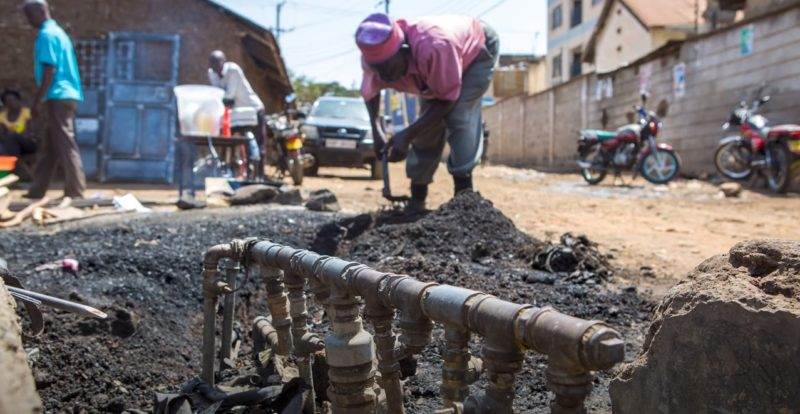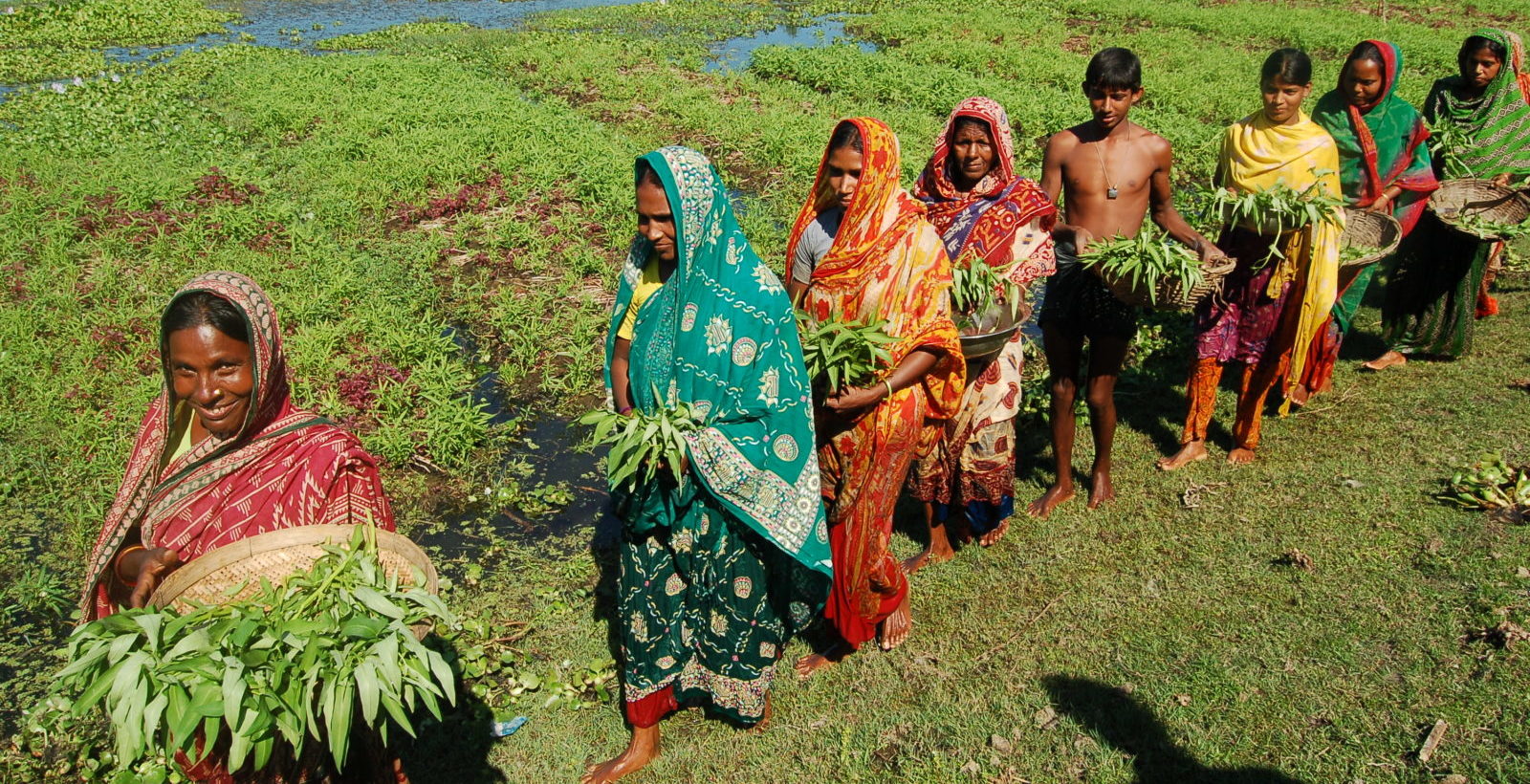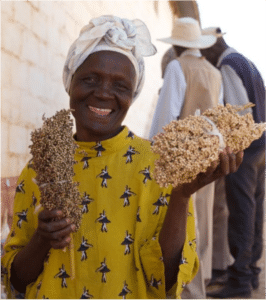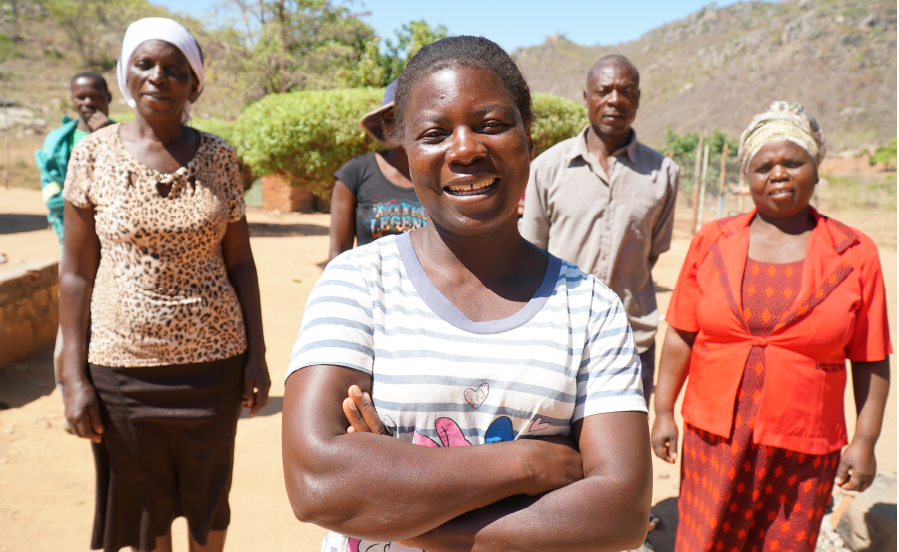The second virtual annual meeting of Community-Based Adaptation (CBA) practitioners took place last week – CBA15: Local Solutions Inspiring Global Actions – and what a great event it was! Despite a year of virtual meetings and various lockdowns, the commitment, passion and innovation shown by participants was impressive.
I jointly led a theme on Innovation for Adaptation together with Susan Nandudu, Executive Director of the African Centre for Trade and Development
People usually think of new technologies when they are asked to be innovative. However, we were thinking more broadly than that. We suggest that innovation is needed to improve trust in local and indigenous knowledge, give a voice to communities to share and use the knowledge they already have, address power imbalances, and allow new partnerships.
We invited organisations interested in participating in CBA15 to share their ideas on how we could explore Innovation for Adaptation, and drawing on over 15 responses we created a programme with 4 contrasting and creative sessions.
Innovation for Adaptation
The first session looked at how the sustainability of adaptation actions can be improved through enterprises and working with the private sector. The examples shared were from Uganda and Nepal and there was clear consensus that private sector actors need to be involved from the start in the design and planning of programmes – early integration builds trust. Also, that there need to be reliable revenue streams for both community and private sector stakeholders.
The Power of Citizen-led Data
The second session looked at the transformative power of Citizen Led Data. The discussion that ensued showed how the Climate Debate has been highly professionalised, with assumptions that communities do not have useful insights, and cannot collect useful data. But the examples that followed from Kenya, Zambia and the Philippines showed that communities can collect detailed information and know a lot about the impacts of climate change. There were many ideas about how this capacity and knowledge can be supported and used.
You can find out more about our work in Kisumu, Kenya in this area here:

Information for better resilience and livelihoods
Another session looked at innovative ways to use climate, data and early warning information to improve rural livelihoods and flood resilience. The data exists, climate information services and early warning systems exist, but anticipatory action is inadequate and vulnerable rural populations struggle on in poverty. Examples of innovative work by Practical Action and Plan International in coastal Bangladesh and Indonesia showed that innovative services and systems and can transform opportunity and risk. The innovation included ways of being more inclusive – improving access – and creating systems that are integrated into the daily lives of rural people, and build in redundancy to ensure the messages get through, and timely action is taken.
My colleague Afsari Begum explains more about this work here:

Ancestral Knowledge – how can we keep hold of it?
And the last session looked at the importance of ancestral knowledge and what we need to do to prevent the loss of this invaluable resource. Conventional approaches to adaptation often ignore the potential of ancestral knowledge – they fail to recognise and use it. One reason is that ancestral knowledge tends to be very location or context specific. It does not lend itself to projects or programmes seeking to promote change at scale.

Traditional seeds and crops can provide a vital tool in helping farmers adapt to climate change
The informal nature and small size of community groups (which lack a legal identity) also makes them hard to support financially. Innovative solutions to address such logistical constraints are needed, and ideas included funding through intermediaries such as the Pawanka Fund, and using technology to facilitate the documentation and sharing of ancestral knowledge, protecting the rights of communities, and managing the volume and diversity of information. In this session Practical Action shared the adaptation potential farmer knowledge of traditional crops in Zimbabwe. These crops are often called orphan crops because they have been bypassed by modern agriculture, but in the changing climate being experienced today these crops and farmer managed seed systems provide a pathway towards more resilient agriculture.
We must invest!
On reflection I felt there was consensus that more innovation, collaboration and experimentation is needed. There was no paucity of examples of actions communities or practitioner development agencies could take.
“People want to be innovative. They want to find win-win solutions that improve climate action and livelihoods. Similarly, there are many community-based, nature-based solutions that need both indigenous and scientific knowledge to be successful. I call upon donors, decision-makers and entrepreneurs to read my call to action for more investment in community based adaptation in this climate super year.”
These annual gatherings of CBA practitioners are a fantastic resource for policy makers and global leaders who are committed to addressing climate change and need confidence and examples of how adaptation can be achieved in those parts of the world most need support. They can help build the capacity of NGOs (local and international) design and scale up CBA initiatives, as well as provide the inspiration for less internationally led, top-down adaptation and more bottom-up, community-based approaches.
